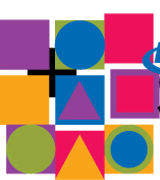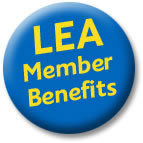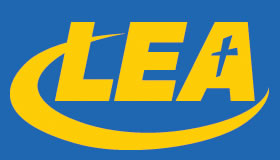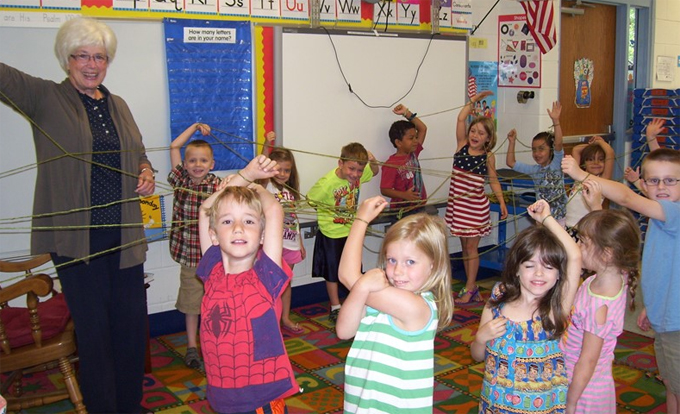 Let the Little Children Come to Me
Let the Little Children Come to Me
Nancy Jahnke recently retired after teaching in an early childhood setting (mostly in Lutheran schools) for 30 years. ShapingtheFuture asked Nancy some questions about her experiences as a Lutheran educator. Nancy is too humble to talk about the lifelong impact she had on young people, so here are some of her words of wisdom.
“We know that children learn through play. That hasn’t changed. Play is their work! This is how they explore, experiment, explore some more, and master tasks…learn!”
What are a few of your best memories from teaching?
The span of 30 years has afforded me many memories, but the best have been those expressions of faith that come honestly from the hearts of the children. I think of the dramatic play area of our classroom during Advent, Lent and Easter, where spontaneous nativity scenes, holy week scenarios, and Easter dramas were enacted with a full cast (auditioned by peers), costumes, and the Bible as script. Ash Wednesday’s burning of palms from the former year and expressions of “I’m sorry for _____,” statements that we nailed to a cross and which privately continued on and on. Weekly prayer petitions expressed by each student and recorded in our prayer pocket journal only to be re-read the following week to see how God had answered those prayers was amazing. Maundy Thursday gave us an opportunity to conduct a mini Seder to participate in the same kind of celebration of Passover that Jesus participated in as a Jewish child and then gave new meaning to at the Last Supper where He declared Himself to be the sacrificial Lamb for the sins of the whole world. Theses hands-on, interactive times brought the person and mission of Jesus, their best friend, and Savior to life. I will never forget these moments.
How have children stayed the same since you began teaching?
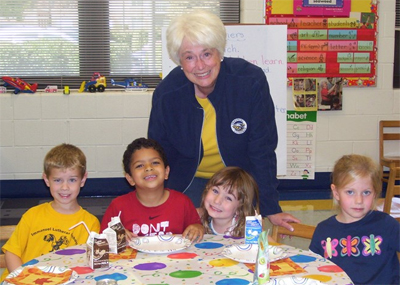 The children of today are much like the children I taught at the beginning of my career in education. [Children] still have the need to be loved, protected, respected, and valued. Each is a unique creation, equipped with his or her own gifts from God, which God intends for use in His kingdom. They have their own developmental timetables and reach physical, intellectual, emotional, social, and spiritual milestones at their own pace. To expect every child to meet certain expectations at the same age or time, is/was a travesty. We know that children learn through play. That hasn’t changed. Play is their work! This is how they explore, experiment, explore some more, and master tasks…learn!
The children of today are much like the children I taught at the beginning of my career in education. [Children] still have the need to be loved, protected, respected, and valued. Each is a unique creation, equipped with his or her own gifts from God, which God intends for use in His kingdom. They have their own developmental timetables and reach physical, intellectual, emotional, social, and spiritual milestones at their own pace. To expect every child to meet certain expectations at the same age or time, is/was a travesty. We know that children learn through play. That hasn’t changed. Play is their work! This is how they explore, experiment, explore some more, and master tasks…learn!
How do you think children have changed in the last 20 years?
Children today are more scheduled than their counterparts of 20 years ago. A great many go to school followed by a lesson, sport, or other activity, then home to dinner, homework, and bed. In school we see that they have difficulty initiating play or an activity when they have free time. They are used to having an activity organized for them and led by another party.
Sadly, I feel that in many ways the innocence of childhood is ebbing away more quickly than when I began teaching. The children are exposed to social media, television, radio, internet, etc. where explicit images of violence are abundant, language is less than edifying, lyrics to songs reference heinous acts, and an “anything goes” ethic is encouraged. Children are becoming numb to such things (as are adults) and imitate violent behaviors on the playground and in the classroom, sing the lyrics to questionable songs not knowing what the words mean, but loving the melodies and rhythms that they hear. These are the kinds of play that they engage in, but are less able to initiate imaginary play of an innocent sort. Another significant change is that many of the children in our schools live in single parent households, where that parent must work many hours in order to make ends meet. Consequently, the children are spending a great deal of time in the care of others. Twenty years ago, the nuclear family consisting of a mother, father, and children was the kind of family that dominated our school. Lastly, since society doesn’t provide a clear sense of right and wrong, our children are often confused when we teach what God asks of us through His Word and Sacraments. The blessing of Lutheran schools is that these principles are consistent throughout the grades and parents, teachers, and administrators are all on the same page as changes in society are addressed.
What were three things you wanted to instill in every child that you taught?
Every child needs to know that he is loved (valued) because she was created by God; that he is equipped with gifts from God that are unique to her, and it is their responsibility to use these gifts to the BEST of their abilities, and that he or she will make mistakes, BIG and small, but that they are forgiven because of what Jesus did for them on the cross.
How did technology impact how you taught and how ECE students learn?
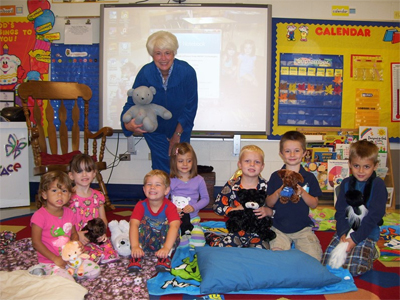 Technology only involved a typewriter and mimeograph machine when I began teaching. The evolution of computers, Smart Boards, the Internet, iPhones, etc. created an ongoing need for teacher education in all of these areas and continue today. As I became proficient in the use of these tools, I was able to implement them with children in the classroom. Keeping current with advancements was almost a losing battle. However, the children were very excited about their use. In Early Childhood, it was fun for the children to practice printing their names, the alphabet, and captions for pictures that they had drawn. It was a wonderful tool for differentiation as well. The advent of the Smart Board provided more interactive and stimulating practice for students in all areas of the curriculum.
Technology only involved a typewriter and mimeograph machine when I began teaching. The evolution of computers, Smart Boards, the Internet, iPhones, etc. created an ongoing need for teacher education in all of these areas and continue today. As I became proficient in the use of these tools, I was able to implement them with children in the classroom. Keeping current with advancements was almost a losing battle. However, the children were very excited about their use. In Early Childhood, it was fun for the children to practice printing their names, the alphabet, and captions for pictures that they had drawn. It was a wonderful tool for differentiation as well. The advent of the Smart Board provided more interactive and stimulating practice for students in all areas of the curriculum.
What was your approach to discipline in the ECE classroom?
The word discipline comes from the Latin for teaching or learning. In the beginning of every year, teachers establish a list of classroom rules. These rules govern the environment for the good of all involved. Our classroom always used a list of rules that told what God’s Children will do in the classroom.
These rules simply stated that God’s children use HELPING hands, feet, words, and ideas. Those were easy to monitor and if “hurts” occurred, we would take aside the injured party and the “hurter” to follow Matthew 18:15, where Jesus encourages us to confront the person who has “hurt" you and point out how it caused the hurt. We model asking for forgiveness and then the injured party offers absolution. It worked well!
How do you teach law/gospel to little ones?
Our classroom rules is where we begin, then as the year continues we study God’s laws, always emphasizing that God loves the children no matter what, but does not like the behavior we exhibit at times. By reminding them of Jesus’ sacrifice on the cross for our sins, they are assured that when they ask God to forgive them for their wrongdoings, He cleanses them for Jesus’ sake. Our behavior should reflect our gratitude to God for all that He has done for us!
How did teaching in Lutheran schools make you a better person?
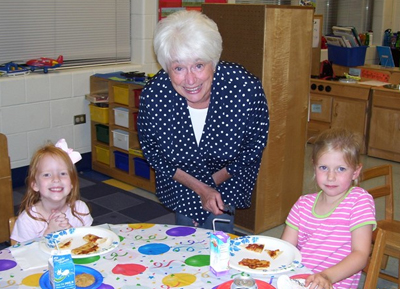 Teaching in Lutheran schools has humbled me and helped me to realize that the children that I taught were God’s children given as gifts to their parents for as long as they are privileged to love and care for them. My place in that partnership was that of a shepherd. God infused each child with gifts that He chose for them. As their teacher, I helped to guide them in their learning and discovery of those gifts, so they can use those gifts responsibly in response to God’s love. A wise saying that I try to remember is that “children will forget most of what you teach them, but they will never forget how you made them feel.” Dedicated to making children feel loved, valued, and respected is what I learned to do through LCMS schools.
Teaching in Lutheran schools has humbled me and helped me to realize that the children that I taught were God’s children given as gifts to their parents for as long as they are privileged to love and care for them. My place in that partnership was that of a shepherd. God infused each child with gifts that He chose for them. As their teacher, I helped to guide them in their learning and discovery of those gifts, so they can use those gifts responsibly in response to God’s love. A wise saying that I try to remember is that “children will forget most of what you teach them, but they will never forget how you made them feel.” Dedicated to making children feel loved, valued, and respected is what I learned to do through LCMS schools.
If you could change anything about Early Childhood Education, what would it be?
I see curious, technologically savvy, capable children in classrooms today. The emphasis on Phonemic Awareness, Phonetic Practice, and systematic practice of High Frequency Words has given our little ones who are developmentally ready the tools they require to read earlier than in years past. Most schools, in fact, expect their Kindergartners to exit Kindergarten as independent readers. That used to take place in first grade. With the majority of children having one to three years of preschool prior to entering Kindergarten, the readiness skills formerly taught in Kindergarten are already in place. There is, of course, a need for review and re-teaching of these skills in Kindergarten, but the ability of teachers to continue past these lessons and instill a love of reading and the skills required to do so independently are now a realization at even the Kindergarten level. A great deal of differentiation is required to meet the needs of children at all developmental levels, but teachers have many more tools available to them these days in order to facilitate such needs.
Children can learn a whole host of factual material, but are they ready to understand or implement the use of what they’ve gained? I would like to see more classrooms with sensory table use, easels, imaginary play areas where there are opportunities for dress-up and dramatic play, and less paper/pencil activity. Children can learn a whole host of factual material, but are they ready to understand or implement the use of what they’ve gained?
Why is Early Childhood Education so important in a Lutheran-Christian classroom?
All education in a Lutheran classroom is important since it is Christ-centered. Children see from early on that God walks with them wherever they go. It was God who gave the command to love Him with all our hearts, souls, and minds and to love our neighbors as ourselves. In Lutheran classrooms, we can see His work in the areas of science, history, mathematics, literature, in the ways in which we interact with one another. In Matthew 19:14, Jesus says, Jesus said, “Let the little children come to me, and do not hinder them, for the kingdom of heaven belongs to such as these.” We learn best from the modeling what we see, and where better than a Lutheran school?
Nancy Jahnke taught in variety of early childhood classrooms, from kindergarten through third grade, including Bethany Lutheran School, Naperville, Illinois, St. John Lutheran School, Wheaton, Illinois, and most recently at Immanuel Lutheran School, Elmhurst, Illinois. She is enjoying retirement, especially having more time with her two granddaughters.

